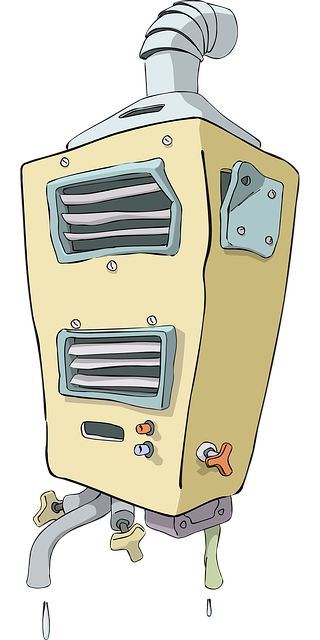If your water heater podcast is failing to provide consistent hot water, causing discomfort and increasing energy bills, it's likely time for an upgrade. Look out for issues like short showers, poorly cleaned dishes, age beyond 10-15 years, temperature fluctuations, strange noises, leaks, long wait times for hot water, and faulty heating elements, as these are clear signs you may need a new water heater to avoid further problems.
Struggling with a water heater that’s not performing up to par? Don’t ignore the signs—it could be time for a replacement. This guide explores the common symptoms of a malfunctioning water heater, such as lack of hot water, long wait times, and inconsistent temperatures. We’ll also delve into when it’s wise to replace your unit, considering factors like age, energy efficiency, repair costs, and safety concerns. By the end, you’ll be equipped to make an informed decision on choosing the best water heater for your home.
- Common Signs Your Water Heater Needs Replacement
- – No hot water despite turning up the thermostat
- – Unusually long wait times for water to heat up
Common Signs Your Water Heater Needs Replacement

If your water heater is no longer performing optimally, it might be displaying several signs that it’s time for an upgrade. One of the most obvious indications is inconsistent or insufficient hot water. If you’re constantly taking shorter showers due to a lack of hot water or finding that your dishes aren’t properly cleaned after using the dishwasher, these could be red flags. Another common sign is an increased energy bill, which often points to an old, less efficient water heater.
Age also plays a significant role; most water heaters last between 10 and 15 years. If yours is nearing or has exceeded this age, it’s wise to consider replacement. Other telltale signs include frequent temperature fluctuations, strange noises coming from the tank, or leaks around the base of the heater. These issues not only impact your comfort but can also lead to more serious problems and costly repairs if left unattended.
– No hot water despite turning up the thermostat

If your water heater isn’t performing as it should, one of the clearest signs is running a tap and not getting hot water, even when the thermostat is turned up high. This could indicate that the heating element inside your water heater is faulty or has failed completely. Heating elements are responsible for warming the water in your tank, so if they’re not functioning, you won’t have access to hot water.
It’s important to pay attention to this sign as it’s one of the most visible and immediate indicators that your water heater may need replacing. While temporary fixes like resetting the thermostat or flushing the system might work for a while, persistent issues with hot water availability are often symptomatic of deeper problems within the water heater’s mechanics.
– Unusually long wait times for water to heat up

If you’re experiencing unusually long wait times for your water to heat up, it might be a sign that your water heater is not functioning optimally. This can be frustrating and indicative of several potential issues. The first step is to check if the pilot light is on and burning steadily. If it’s out or flickering, this could be causing delayed heating.
Additionally, older water heaters may not be as efficient as new models, leading to longer wait times. Insufficient heating can also result from issues with the heating element, thermostat, or even mineral buildup inside the tank. Regular maintenance and timely replacement are key to ensuring consistent hot water supply without delays.
If you’ve experienced persistent issues like no hot water or lengthy heating delays, it may be time to consider Signs You Need a New Water Heater. Regular maintenance can often address minor problems, but severe cases require replacement. Modern water heaters offer enhanced efficiency and advanced features, ensuring a reliable supply of hot water for your home. By addressing heating issues promptly, you can avoid temporary inconveniences and potential long-term damage to plumbing systems.
